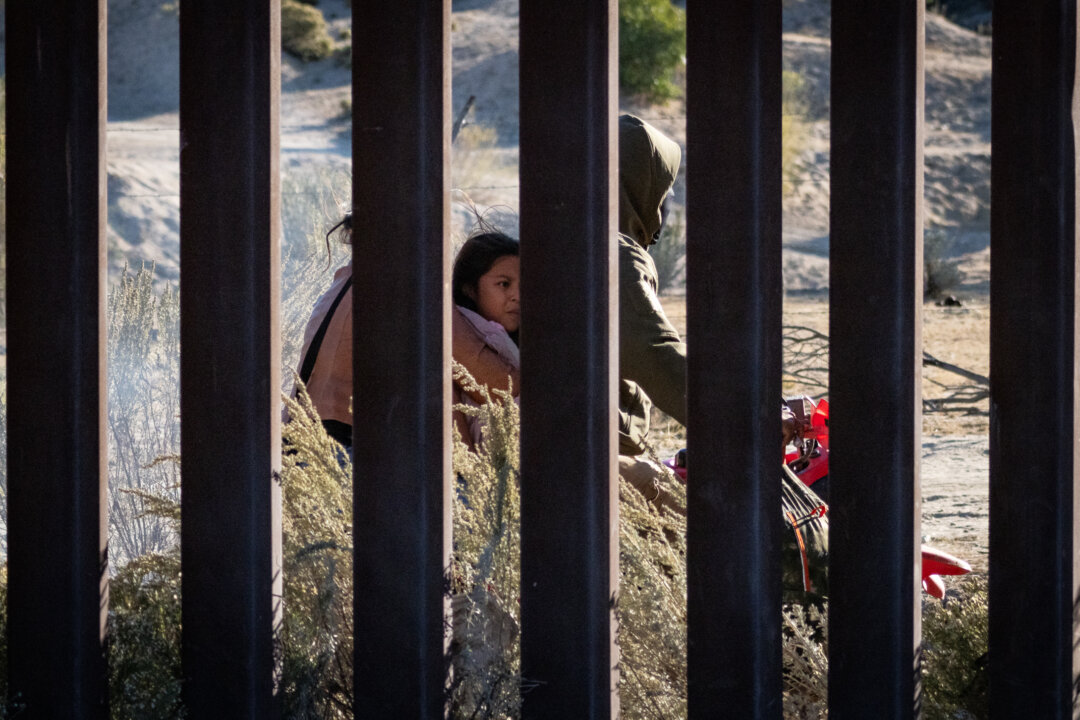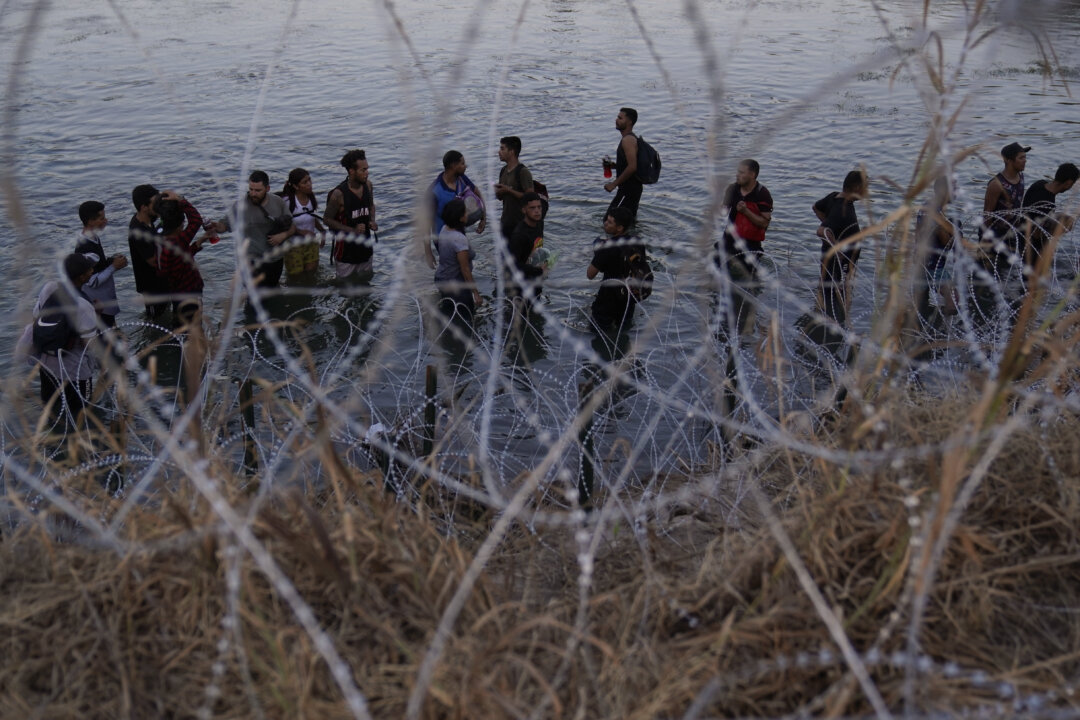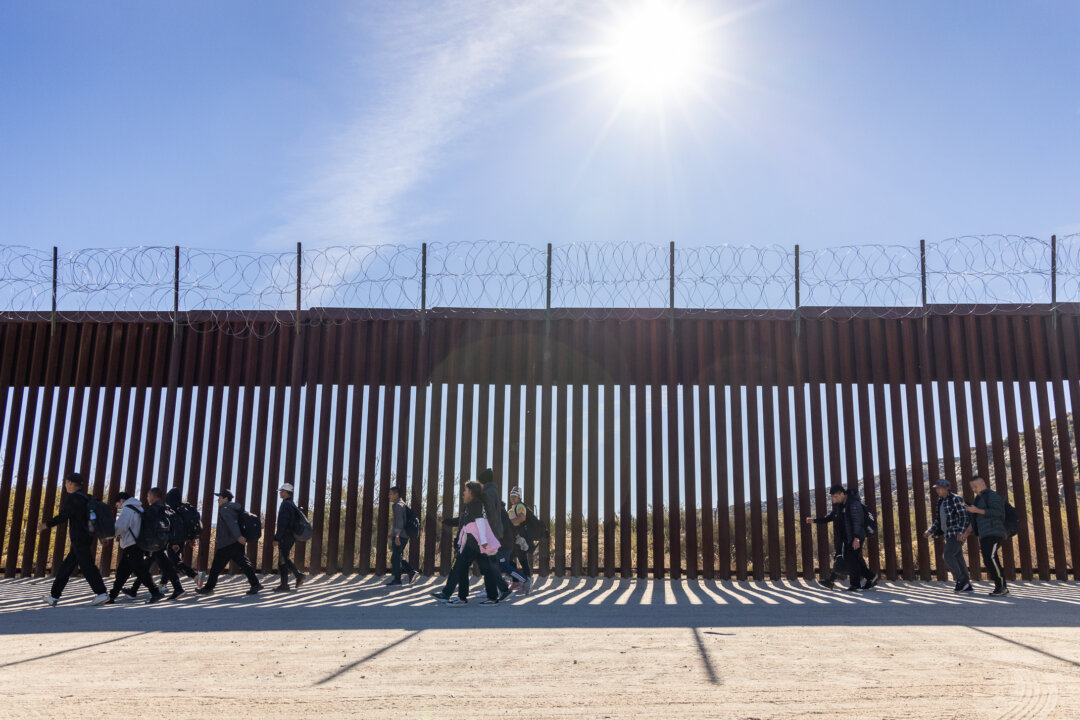YoursTruly
Platinum Member
- Dec 21, 2019
- 8,910
- 5,520
- 940
Simple question. I can't elaborate more on this, because there's nothing to add. Can he secure the border or not.
Follow along with the video below to see how to install our site as a web app on your home screen.

Note: This feature currently requires accessing the site using the built-in Safari browser.
According to Primetime, on Fox......yes, under a title 8 law enacted in 1952....Simple question. I can't elaborate more on this, because there's nothing to add. Can he secure the border or not.
Can he, will he, must he, or does he have the obligation from his oath to do so?Simple question. I can't elaborate more on this, because there's nothing to add. Can he secure the border or not.
It's the US border , it's under federal control. States have boundaries or state lines with other states, they are under state control. But even there the interstates are federal. I would assume the president can shut the border down if he has good reason. I just wanted to clarify the distinction because the gov. Of a Texas is way out of line with what he is doing. Ask Wikipedia , they have all the correct answers.Simple question. I can't elaborate more on this, because there's nothing to add. Can he secure the border or not.
Since no president has been able to do this successfully , it's a matter of is it possible at all.Can he, will he, must he, or does he have the obligation from his oath to do so?
Bullshit butthead!It's the US border , it's under federal control. States have boundaries or state lines with other states, they are under state control. But even there the interstates are federal. I would assume the president can shut the border down if he has good reason. I just wanted to clarify the distinction because the gov. Of a Texas is way out of line with what he is doing. Ask Wikipedia , they have all the correct answers.






Fake news as reported by Stain.It's the US border , it's under federal control. States have boundaries or state lines with other states, they are under state control. But even there the interstates are federal. I would assume the president can shut the border down if he has good reason. I just wanted to clarify the distinction because the gov. Of a Texas is way out of line with what he is doing. Ask Wikipedia , they have all the correct answers.
Simple question. I can't elaborate more on this, because there's nothing to add. Can he secure the border or not.
Piece of cake.Simple question. I can't elaborate more on this, because there's nothing to add. Can he secure the border or not.
From Part II in he above post, select excerpts;
...
Some Basic Principles
War, borders, and foreign affairs are subjects of international law. The American Founders called international law the “law of nations.” For their background in the law of nations, the Founders relied on their own experience and on a handful of leading authors: the Dutch writer Hugo Grotius, the Swiss scholar Emer de Vattel, and others. Reading those authors today sheds light on the Constitution’s meaning and organization.
Founding-era “law of nations” books distinguished between offensive wars and defensive wars. A sovereign fought a just offensive war to seek compensation for injury or to deter an enemy from inflicting injury. (Wars for mere conquest were considered “unjust.”) A sovereign launching a just offensive war generally preceded it with a formal announcement called a declaration of war.
Sovereigns fought defensive wars to prevent injury. Examples were military responses to invasion and insurrection. Usually, a sovereign engaged in a defensive war wasn’t the first to strike. But if an invasion was imminent, a sovereign could launch a preemptive attack, and it still was considered defensive.
...
Federal War Powers
The division between offensive and defensive warfare is baked into our Constitution. The division helps explain which military powers the Constitution granted the federal government and which military powers the states retained.
Under the Constitution, only the federal government may wage offensive war. Congress, therefore, may “declare War” (Article I, Section 8, Clause 11).
The Constitution also grants the federal government power to wage defensive war. Article II, Section 3 directs the president to “take Care that the Laws be faithfully executed.” This was the section that gave Abraham Lincoln the authority to commence military operations against the seceding Southern states.
Article IV, Section 4 says that “the United States shall ... protect each [state] against Invasion; and on Application of the Legislature, or of the Executive (when the Legislature cannot be convened) against domestic Violence.”
This language means (1) the federal government is empowered—and required—to wage defensive war against invasion (a duty the Biden administration is disregarding), and (2) the federal government is empowered—and required—to wage war or undertake a police action against domestic violence, if an affected state demands that it do so.
...
State War Powers
The Constitution didn’t transfer all sovereignty to the federal government. Some sovereignty—including some sovereign war powers—remained in the states. During the constitutional debates of 1787–1790, the Constitution’s advocates repeatedly explained this. State war power didn’t derive from the Constitution. It was part of the reservoir of sovereign authority retained by the states (“reserved”) after the document was ratified.
Article I, Section 10, Clause 3 limited these reserved state war powers, but also recognized them:
“No State shall, without the Consent of Congress ... keep Troops, or Ships of War in time of Peace ... or engage in War, unless actually invaded, or in such imminent Danger as will not admit of delay.”
Let’s flip that language to an affirmative form:
“Any state may keep troops and ships of war in time of war, ... and engage in war ... if actually invaded or in such imminent Danger as will not admit of delay.”
In other words, states may wage defensive, but not offensive, war. Unlike the Articles of Confederation (1781–1789), the Constitution imposed no limit on the armies or navies a state may raise during a time of war. (The states aren’t limited to their militias.) Unlike the Articles, the Constitution laid down no requirement that the war be congressionally declared and no restriction on the nature of the invasion. The only requirements imposed by the Constitution are that there be an actual invasion or an “imminent Danger” of one.
....
‘Enemies of the Human Race’
During the 18th century, civilized nations were often disturbed by criminal gangs that recognized no sovereigns. Legal writers called these gangs hostes humani generis—a Latin phrase meaning “enemies of the human race.”
Enemies of the human race might operate on the sea, prey on shipping, and attack port towns. If so, they were called “pirates.” But enemies of the human race also included land-based gangs of thieves, deserters, poisoners, assassins, incendiaries, and (as the legal commentator William Blackstone characterized them) “unauthorized voluntiers [sic] in violence.”
The Constitution left the states with the power to conduct war against invasions launched by enemies of the human race. It also left the states with police power to respond to their criminal acts.
...
The attitudes of the founding generation against these malefactors were remorseless. As Emer de Vattel, the Founders’ favorite international law authority, wrote:
“If the justice of each nation ought in general to be confined to the punishment of crimes committed in its own territories; we ought to except from this rule, the villains, who by the quality and habitual frequency of their crimes, violate all public security, and declare themselves the enemies of the human race. Poisoners, assassins, and incendiaries by profession, may be exterminated wherever they are seized ...”
Can you think of some “enemies of the human race” operating along our Southern border today?
...

Understanding the Constitution: How States May Respond to Illegal Immigration—Part II
This part II explains federal and state responsibility in the face of invasion and introduces the topic of transnational criminal gangs.
www.theepochtimes.com
Robert G. Natelson, a former constitutional law professor who is senior fellow in constitutional jurisprudence at the Independence Institute in Denver, authored “The Original Constitution: What It Actually Said and Meant” (3rd ed., 2015). This series is based on his forthcoming research article co-authored with Andrew T. Hyman: “The Constitution, Invasion, Immigration, and the War Powers of States.” It will appear early this year in Volume 13, Issue 1, of the British Journal of American Legal Studies.

Depends. Is he above the law?Simple question. I can't elaborate more on this, because there's nothing to add. Can he secure the border or not.
We never had to until corporations in America started hiring illegals to increase their profits. We have an illegal employer problemDemocrats could secure the border if they wanted to. They don't. Back to MAGA.
IF that is the case, why was President Trump able to have far, far fewer illegal aliens coming across the border? Why is it such a clusterheck today?We never had to until corporations in America started hiring illegals to increase their profits. We have an illegal employer problem


IF that is the case, why was President Trump able to have far, far fewer illegal aliens coming across the border? Why is it such a clusterheck today?

